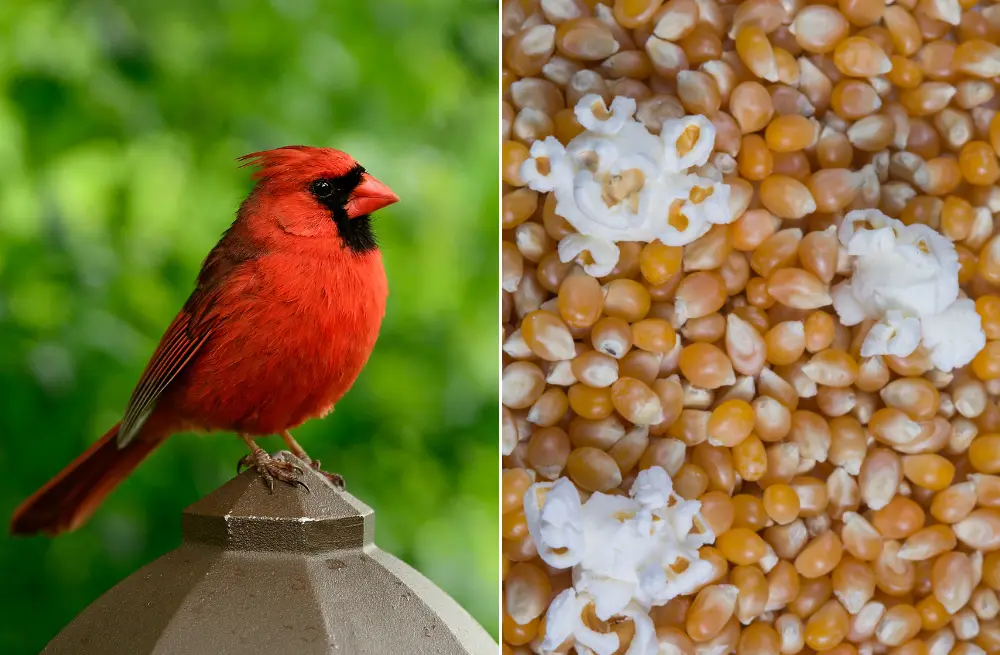A kangaroo’s daily food intake can vary depending on factors such as its size, age, and the availability of food. On average, an adult kangaroo consumes about 1-4 kilograms (2.2-8.8 pounds) of plant matter per day. They are herbivores and primarily feed on grasses, leaves, shoots, and other vegetation.
Kangaroos have a specialized digestive system that allows them to extract maximum nutrients from their food, enabling them to survive in arid and less fertile environments. It’s important to note that the specific dietary needs may vary among different species of kangaroos.
Factors Affecting Food Intake on kangaroos
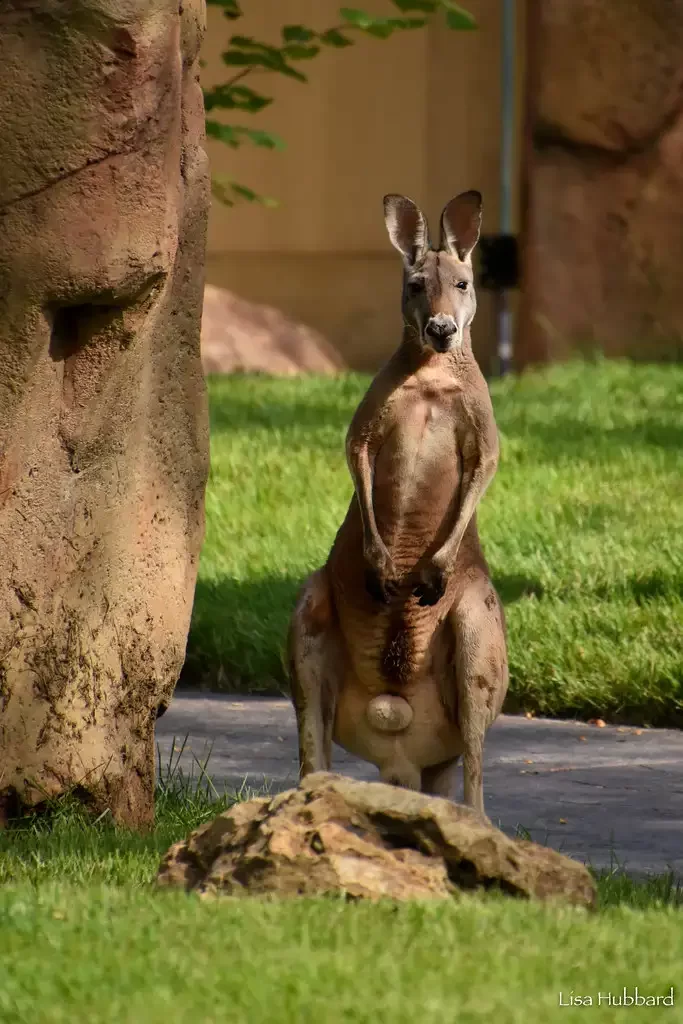
Several factors can influence the amount of food a kangaroo consumes on a daily basis. These factors include the kangaroo’s:
Size
The size of a kangaroo plays a significant role in determining its food intake. Larger kangaroos generally require more food to meet their energy needs compared to smaller ones. As kangaroos grow and develop, their food intake tends to increase.
Age
Age is another important factor affecting food intake. Juvenile kangaroos, known as joeys, have smaller stomachs and may consume less food compared to adult kangaroos. As joeys mature, their food intake gradually increases to support their growth and energy requirements.
Sex
Sex can also influence a kangaroo’s food intake. Males, especially during the breeding season, may consume more food to sustain their higher energy demands. Female kangaroos, on the other hand, may have increased food intake during pregnancy and lactation to support the growth and development of their offspring.
Health
The health of a kangaroo can impact its food intake. Illness, injury, or other health conditions may affect a kangaroo’s appetite and ability to consume food normally. In such cases, a kangaroo’s food intake may decrease temporarily until it recovers and resumes normal feeding patterns.
Food Availability
In the vast and diverse habitats that kangaroos call home, the availability of food sources plays a crucial role in shaping their daily food intake. Kangaroos have evolved to thrive in various environments, from expansive grasslands to dense woodlands, and their dietary preferences adapt accordingly.
The abundance or scarcity of vegetation, including grasses, leaves, and shoots, directly influences the quantity of food a kangaroo consumes.
Daily Food Consumption of kangaroos
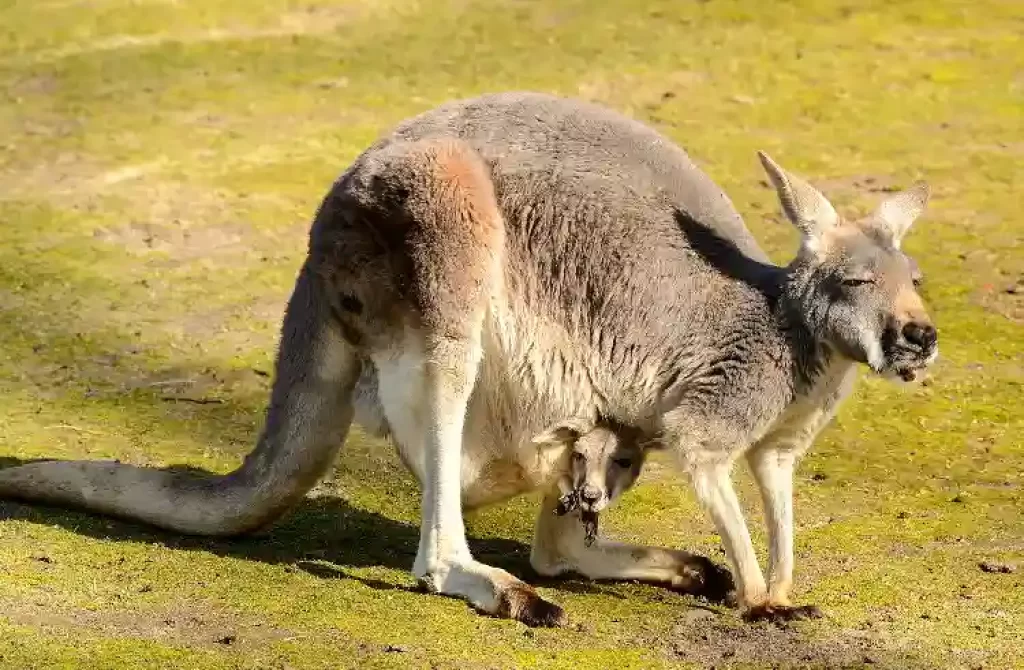
On average, an adult kangaroo consumes approximately 1-4 kilograms (2.2-8.8 pounds) of plant matter per day. However, it’s important to note that this can vary depending on the species of kangaroo and environmental conditions.
Plant Diet
Kangaroos are grazers, feeding primarily on grasses, leaves, shoots, and other vegetation. They have a selective feeding behavior and can browse on a wide variety of plant species depending on what is available in their habitat. This adaptability allows them to survive in different types of ecosystems, including grasslands, woodlands, and shrublands.
Digestive System
Kangaroos have a specialized digestive system designed to extract maximum nutrients from the plant material they consume. They have a large fermentation chamber called the foregut, which enables them to break down tough plant fibers and extract nutrients through microbial fermentation.
Water Dependency of kangaroos
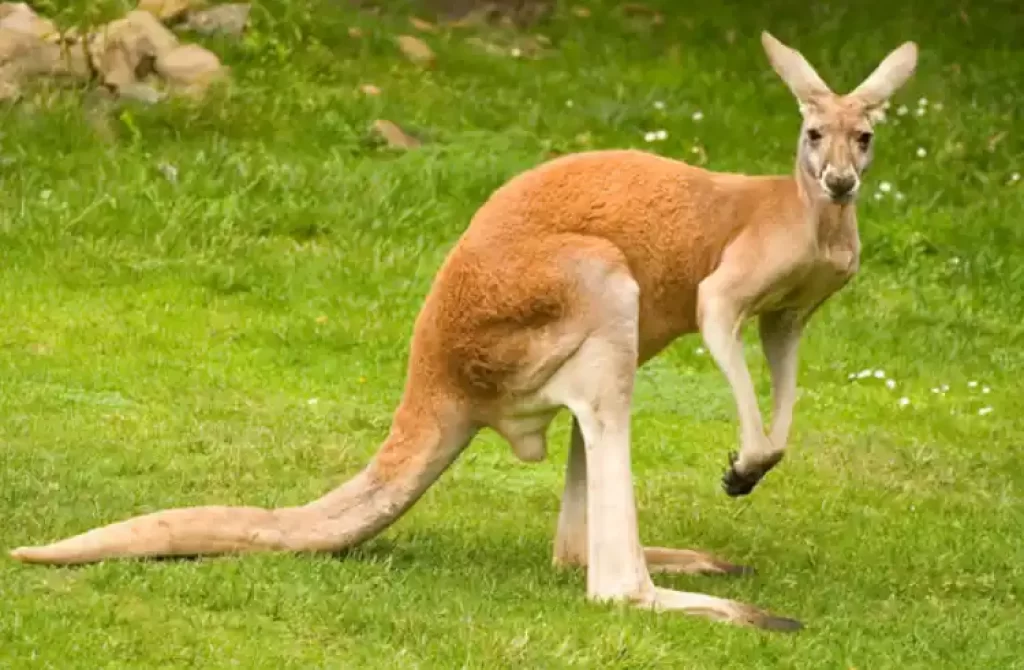
Kangaroos have unique water-saving adaptations that allow them to survive in arid environments. They can obtain a significant portion of their water requirements from the moisture present in the plants they consume. This adaptation helps them conserve water and reduces their reliance on external water sources.
Dietary
Variations It’s worth noting that the specific dietary needs and preferences may vary among different species of kangaroos. Some species may have dietary preferences for certain types of grasses or browse on specific plant species, depending on their natural habitat and availability of food resources.
How often do kangaroos eat?
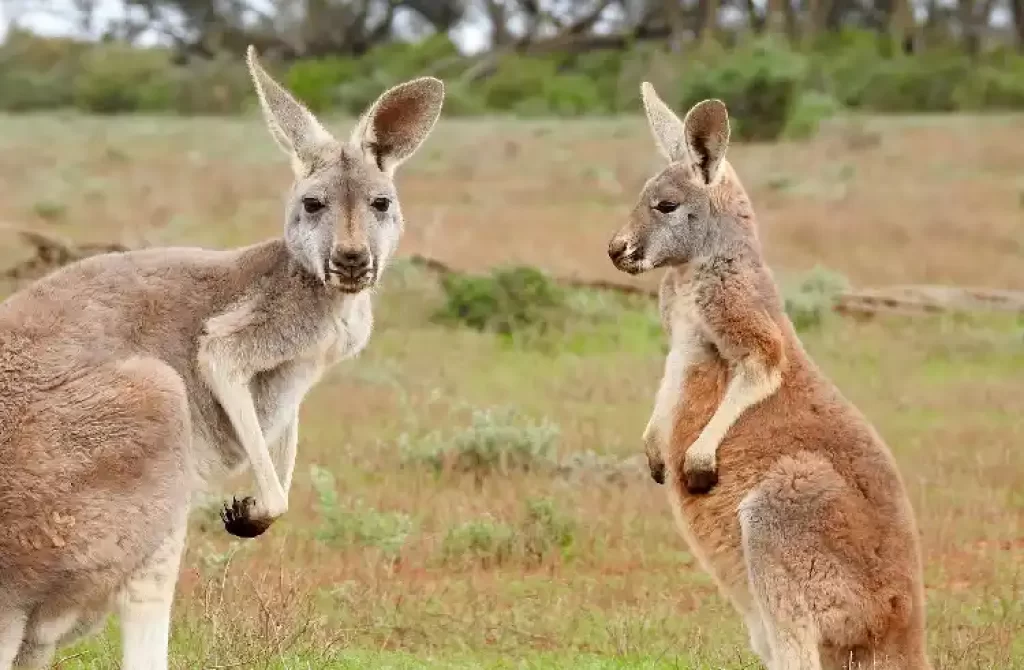
Kangaroos have a grazing pattern when it comes to eating, and their feeding behavior can vary depending on factors such as food availability and environmental conditions. On average, kangaroos feed during the early morning and late afternoon, which coincide with cooler temperatures.
These marsupials are known to be crepuscular, meaning they are most active during dawn and dusk. During these times, they will forage for food, consuming plant matter such as grasses, leaves, and shoots. However, if necessary, kangaroos can adjust their feeding schedule and behavior to adapt to changes in food availability or other environmental factors.
How much does a red kangaroo eat per day?
The dietary requirements of a red kangaroo can vary based on factors such as age, sex, and overall health. On average, an adult female red kangaroo with a body weight of around 25 kg (55 lbs) consumes approximately 0.59 kg (1.3 lbs) of food per day.
It’s important to note that this is an average estimate, and individual dietary needs may vary. Red kangaroos primarily feed on grasses, leaves, and other vegetation found in their natural habitat, and their diet provides them with the necessary nutrients to sustain their energy levels and support their growth and development.
Can kangaroos eat meat?
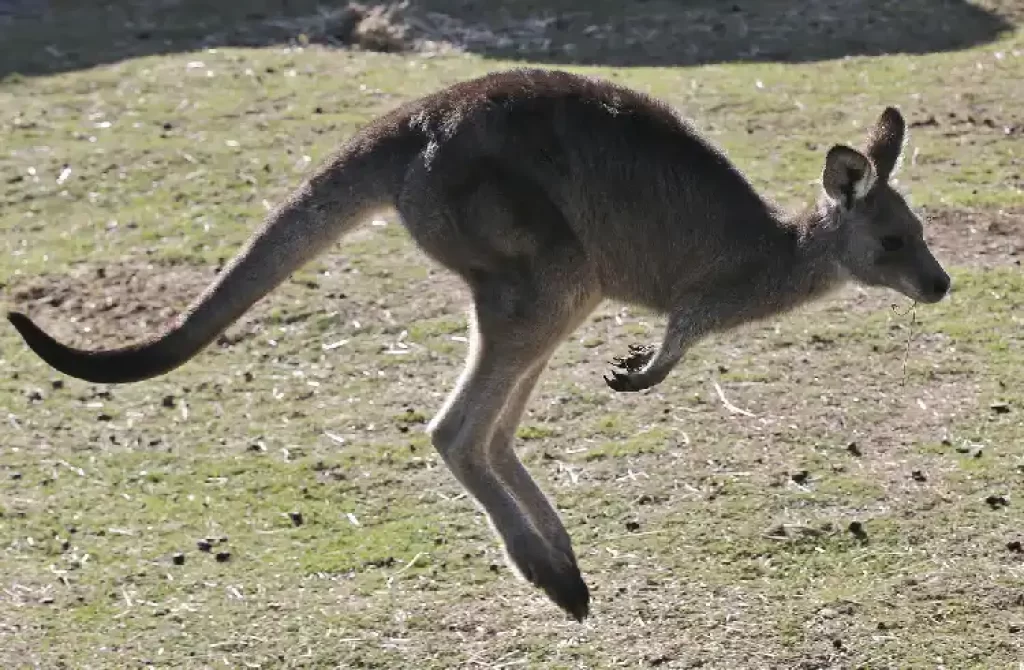
Kangaroos are herbivorous animals, meaning they primarily consume plant-based foods. Their diet mainly consists of grasses, leaves, and other vegetation found in their natural habitat. While kangaroos are not adapted to be carnivores, there have been rare instances where kangaroos have been observed engaging in cannibalistic behavior, particularly during times of food scarcity.
However, such behavior is not considered a normal part of their diet, and their digestive system is not designed to efficiently process meat. Thus, it can be concluded that kangaroos are primarily herbivores and rely on plant matter for their nutritional needs.
Up Next:
- What do Kangaroos Look like When They are Born?
- Human vs Kangaroo: Who Wins the Ultimate Fight?
- How Many Kangaroos are there in Australia?
- What do Kangaroos Eat in the Desert?
- Can Kangaroos Move Their Legs Independently?
- Building a Kangaroo-Proof Fence
- How High Can Kangaroos Jump?



